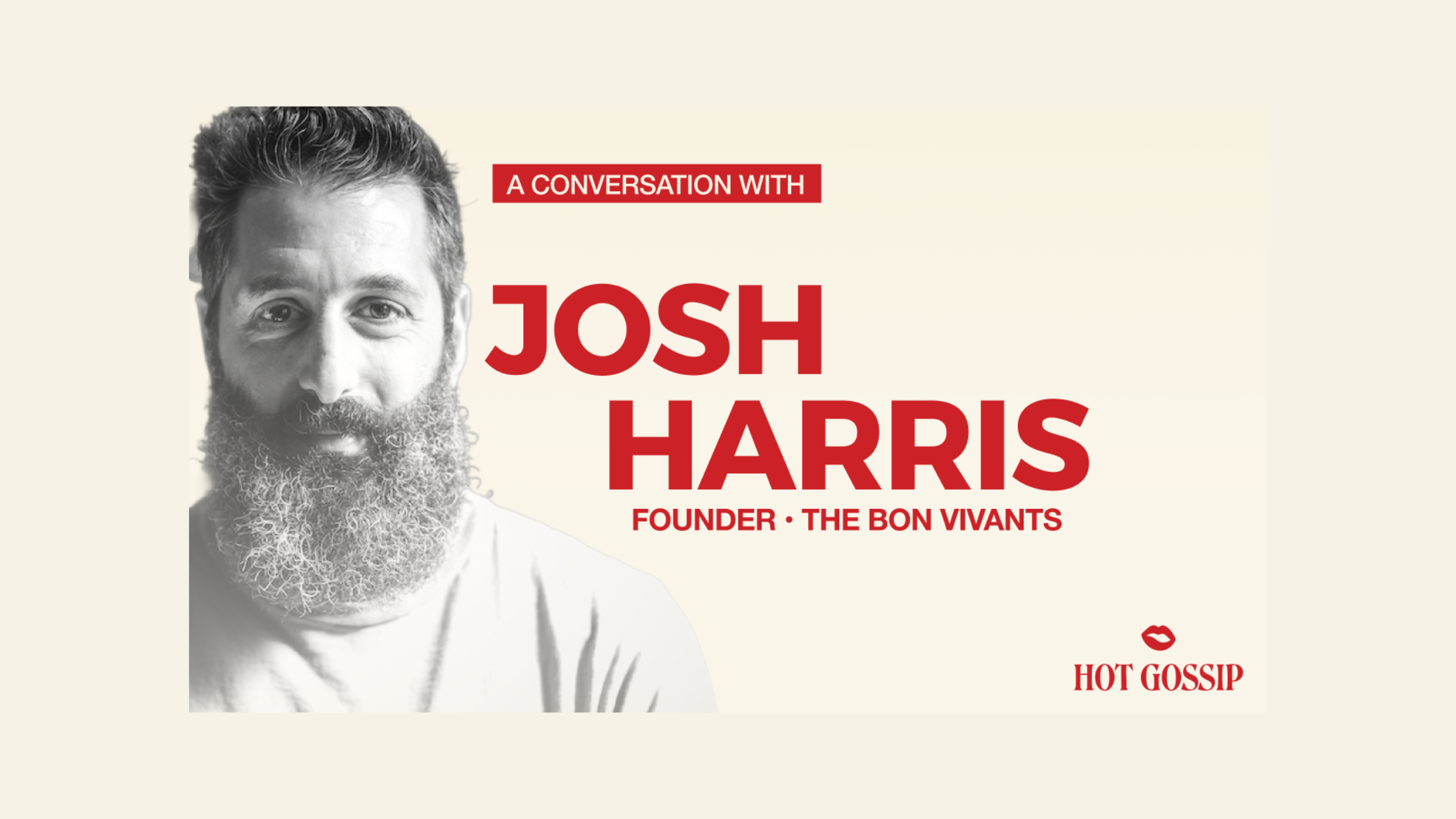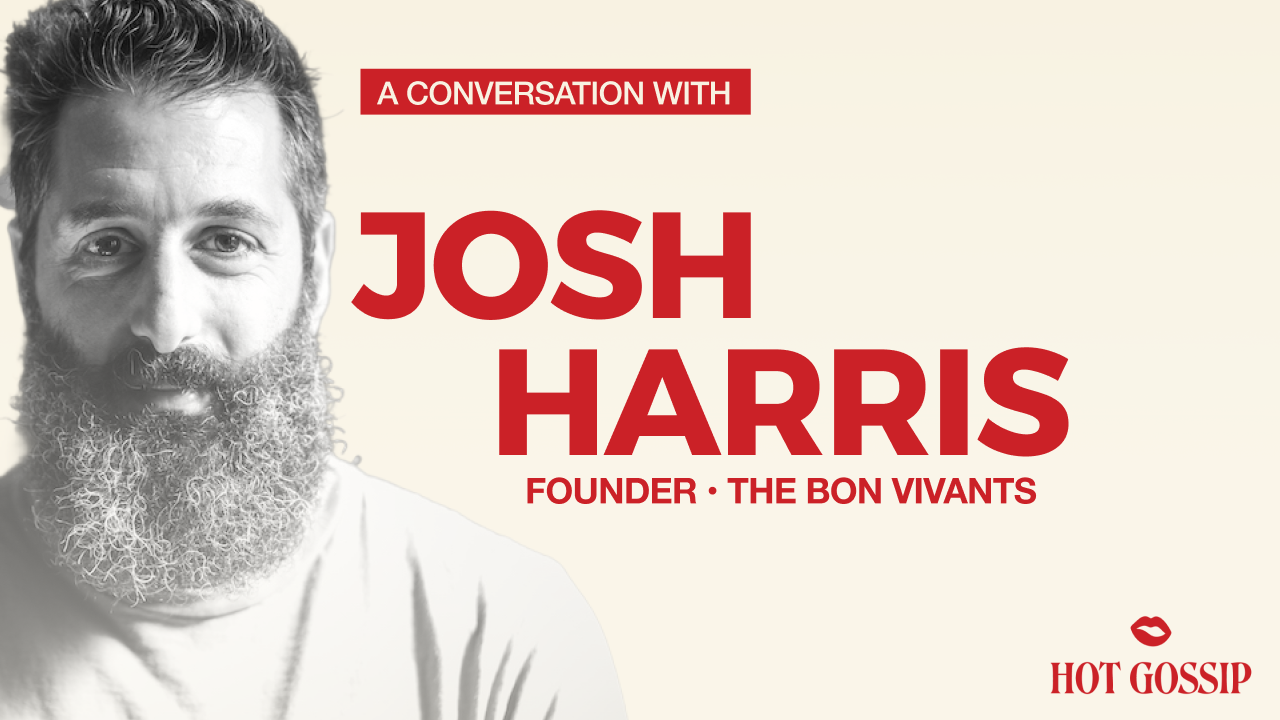Trick Dog: A Conversation with Josh Harris on Concept Integrity

This article accompanies our Hot Gossip podcast episode featuring Josh Harris, founder of Trick Dog. Listen to the full conversation →
When COVID forced the hospitality industry into survival mode, most operators faced the same impossible choice: compromise your concept to stay open, or risk everything by closing. Josh Harris, founder of San Francisco's acclaimed Trick Dog, chose a third option that few considered, maintain absolute integrity to the concept, even if it meant not operating at all.
"If Trick Dog can't be Trick Dog, I don't want to do it," Harris told us during our conversation. This decision, which could have been viewed as stubbornly idealistic, instead became the foundation for his next concept, Quick Dog, and revealed something essential about building hospitality experiences that endure.

The Discipline of Constant Reinvention
Harris has maintained Trick Dog's position among the world's top bars for over a decade through an unusual strategy: complete concept reinvention every six months. This isn't merely menu changes, it's a total reimagining of identity, design elements, and guest experience while maintaining the space's essential character.
"A great menu at Trick Dog finds itself in the intersection of form and concept," Harris explains. "You can have great ideas with form but not a great concept to back it up, or there's a great concept but you haven't understood how that's going to be brought to life with a form. When you find where that intersection is, that's where a good menu lies."
This approach demands exceptional discipline. Each iteration requires the team to abandon successful elements and risk alienating guests who connected with the previous version. Yet this constant evolution has become Trick Dog's defining characteristic, creating anticipation and ensuring relevance in a market where concepts typically fade after initial acclaim.
Learning from Spatial Failures
Not every Harris venture has succeeded. Bon Voyage, his second bar, closed after eighteen months of operation plus the pandemic shutdown. The failure wasn't due to concept or execution quality, Harris describes it as "the most beautiful space I've seen" with "outstanding drinks" and "super cool vibe."
The issue was spatial. The two-level layout created operational challenges that undermined guest experience. Visitors would discover the intimate upstairs space and migrate there, leaving the main bar area without the energy essential for hospitality spaces. Meanwhile, a single bartender upstairs struggled to serve the overflow while three bartenders downstairs remained underutilized.
"People would come into the space and look around, they'd be like, oh, this is cool. Then they'd be like, I wonder what's up there? Then they'd go up there and they'd be like, this is cool too. And then they'd wait there," Harris recalls. The spatial design inadvertently worked against the operational needs of the business.
These expensive lessons informed Harris's approach to Quick Dog at Mission Rock, where he prioritized operational flow and energy management from the initial design phase.
Leadership Through Outcome Rather Than Process
Harris's management philosophy reflects his broader approach to concept integrity. Rather than micromanaging processes, he focuses on outcomes and trusts his team to find their own paths to success.
"I don't like to be managed, which is obviously why I own my own business, but I want to pay that same respect to other people," he explains. "If people work efficiently and they're not managed in the process unless they need it, but they're managed to an outcome, then that creates a really trusting and free environment."
This approach extends to unconventional policies like unrestricted vacation time, contingent only on maintaining work quality. The philosophy has retained core team members for years while attracting people who thrive in autonomous environments.
Harris acknowledges this isn't universally applicable: "People that need to have their hand held are not right for our team." But for those who succeed in this environment, it creates exceptional ownership mindset and professional development.
Business as Platform for Values
Beyond operational success, Harris has used his businesses as platforms for community impact. Through Trick Dog's menu sales and the annual Pig and Punch event series, his companies have raised close to $1 million for local organizations focused on youth development, education, and animal welfare.
"One of the things that's been really cool about being a business owner has been to apply my personal values to the business and recognize the business as like a living thing that can have values," Harris reflects. "What good is having a business if you can't have it be a representation of who you are in some ways?"
This integration of personal and business values creates authenticity that guests recognize, even if unconsciously. It also provides meaning that sustains Harris through the inevitable challenges of hospitality operations.
Building for Generational Impact
Harris's current focus, Quick Dog at the Giants' Mission Rock development, represents his attempt at creating what he calls a "generational icon." The concept draws inspiration from neighborhood burger places that become embedded in community memory, spaces where multiple generations create shared experiences.
"I had this feeling that everybody around the country has a place in wherever they're from where they went and got a hamburger or cheeseburger with whoever that person was in their life," Harris explains. "I wanted to embrace that idea and become that place for a new generation of people."
The location choice reflects strategic thinking about community development. Rather than following established foot traffic, Harris is betting on the Mission Rock neighborhood's potential to become a genuine community rather than just a commercial district.
The Intersection of Personal and Professional Integrity
Throughout our conversation, Harris's approach to business consistently reflected his personal values and experiences. His twenty-one years of sobriety inform his leadership style, his commitment to authenticity, and his long-term perspective on building sustainable businesses.
"It hasn't been hard for me to remain sober," he notes. "All the other stuff is what's been hard", referring to the emotional development and self-awareness required for authentic leadership.
This integration of personal growth with professional development creates a foundation for decisions that prioritize long-term integrity over short-term gains. It's a approach that requires exceptional discipline but creates businesses with genuine staying power.

Defining Hospitality
When asked to define hospitality in our rapid-fire closing questions, Harris offered a deceptively simple response: "Hospitality is exceeding people's expectations in unexpected ways."
This definition captures something essential about his approach to concept development. Rather than delivering exactly what guests expect, authentic hospitality creates experiences that surprise while feeling natural and right.
The discipline required to consistently exceed expectations in unexpected ways, while maintaining operational efficiency and financial sustainability, represents the true challenge of hospitality leadership.
Josh Harris's approach to building authentic hospitality experiences offers lessons applicable beyond restaurants and bars. His emphasis on concept integrity, spatial intelligence, and values-driven leadership provides a framework for creating businesses that endure by staying true to their essential character.
Listen to our full conversation with Josh Harris on Hot Gossip, available on all podcast platforms.
